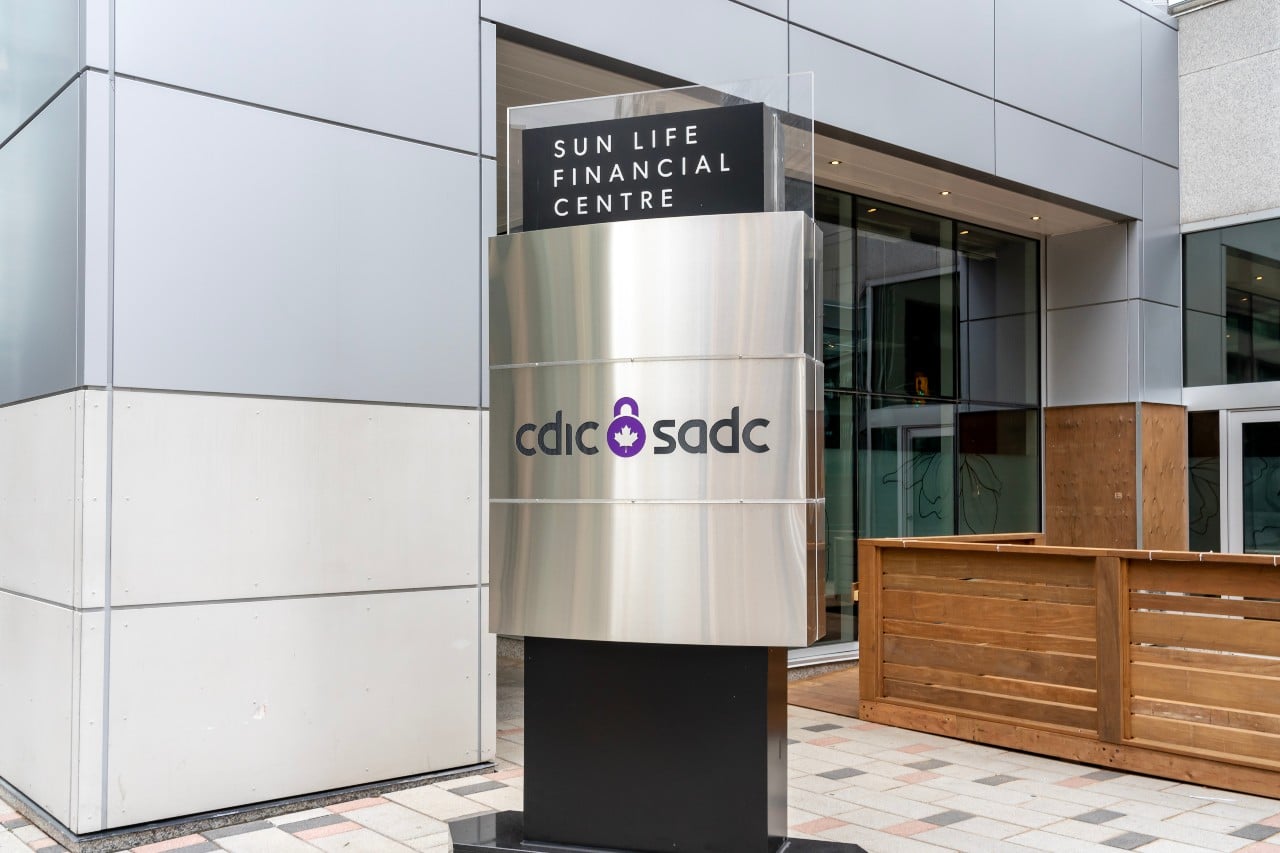You might have heard of the Canadian Deposit Insurance Company (CDIC) before, but who are they exactly? How do they protect Canadians? As we have seen in recent months, banks sometimes fail. It can be easy to forget that financial institutions are businesses and, like other corporations, can collapse and be forced to close down. Unfortunately, if this happens people can lose all of their money held within the bank. This is where CDIC comes into play. They protect our finances by providing deposit insurance to Canadians across the nation. Continue reading to learn more.
What is CDIC?
CDIC provides deposit insurance to Canadians. If a financial institution fails, deposit insurance protects your money held in accounts with that bank. However, there are limits to how much CDIC will insure depositors.
The Parliament of Canada created the organization in 1967. Consequently, that makes it a crown corporation. As such, it works in close conjunction with the Government of Canada. They have the following objectives:
- Provide insurance for the potential loss of part or all deposits
- Support and promote the stability of the financial system in Canada
- Act on behalf of the best interests of depositors while minimizing losses.
How does CDIC work?
The Canadian Deposit Insurance Company works like any other insurance company. Although, it differs slightly because it is a public insurance company. Whereas most insurance companies are private. It also identifies as a non-profit organization. In other words, it’s not in the business of earning a profit but rather protecting Canadian deposits.
Financial institutions pay premiums to be a member of CDIC. It’s these premiums that fund CDIC operations. For example, members include Scotiabank (Bank of Nova Scotia), Bank of Montreal, Royal Bank of Canada, Toronto-Dominion Bank, and CIBC.
In the case of a bank covered under CDIC failing, the organization will contact you. Consequently, you do not need to do anything to make a claim. The Canadian Deposit Insurance Company will work with you to get your insured money back into your hands.
What’s covered?
CDIC only covers deposits at financial institutions. This includes chequing and savings accounts held at CDIC member banks, credit unions, and alternative banks. CDIC insures up to $100,000 in the following account types:
- Chequing accounts, savings accounts, term deposits and guaranteed investment certificate accounts in your name alone
- Joint accounts
- Savings in trust accounts for each beneficiary
- Tax-Free Savings Account (TFSA)
- Registered Retirement Savings Plan (RRSP)
- Registered Retirement Income Fund (RRIF)
- Registered Education Savings Plan (RESP)
- Registered Disability Savings Plan (RDSP)
- Tax-Free First Home Savings Account (FHSA)
What’s not covered?
CDIC provides insurance for deposits, not investments. As such, CDIC does not insure the following:
- Mutual funds
- Stocks
- Bonds
- Exchange-traded funds (ETFs)
- Cryptocurrency
- Other investments held within a bank
- Other losses due to fraud or theft
Calculating how much you’re covered for
Generally speaking, CDIC insures up to $100,000 for each type of account you hold within a bank. There is a misconception that having multiple savings accounts at numerous banks means you’re for up to $100,000 at each bank. Unfortunately, this isn’t true. Coverage is based on the type of account, not the financial institution. That is to say, for each type of account you have from the ones listed above, CDIC insures up to $100,000.
How to find out if your money is insured
Your money is insured if your financial institution is a member of the Canadian Deposit Insurance Company. If your bank, credit union or financial institution is a member, that means they pay premiums to CDIC. However, if they were to fail, then your money would be insured. All in all, there are 86 members of the Canadian Deposit Insurance Company, including the big five banks. You can take a look at the CDIC members listing to determine if your financial institution is covered.
Maximizing coverage
Maximize insurance coverage by only putting your money into financial institutions insured by the CDIC. Before opening a new chequing account or savings account, be sure to check if the bank is insured. If not, choose one that is insured to optimize your coverage.
Also, take into consideration how your money is separated between your accounts. If you have one type of account holding above CDIC coverage limits it may be worthwhile moving some to another type of account so you remain fully covered.
Investments
Even though investments aren’t covered by CDIC, that doesn’t mean there aren’t protections for them. The Canadian Investor Protection Fund (CIPF) is in place to offer protection, under certain circumstances, for investors.
Final thoughts
The Canadian Deposit Insurance Company is in place to provide an extra layer of security to the Canadian Economy. It can also bring about some peace of mind if you’re concerned about recent economic events. Fortunately, your deposits within CDIC-insured banks are safe if any of them were to collapse.
Do you have other financial worries, like struggling with overwhelming debt? If so, Debt.ca can help! Reach out today to find out more.











